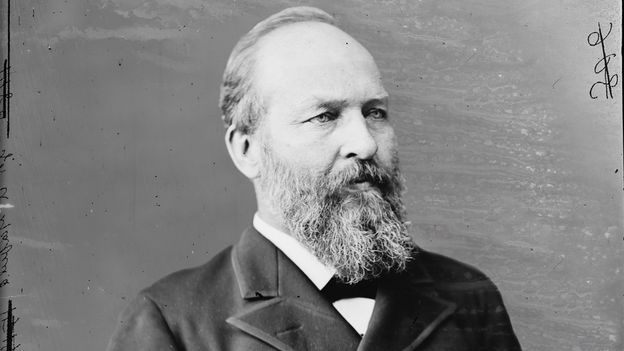The Assassination of President Garfield: A Tale of Ambition, Obsession, and Tragedy
The Setting: An Ambitious Presidency
James A. Garfield’s inauguration in March 1881 marked the beginning of an era filled with promise. Touted as a president with an ambitious agenda, Garfield aimed to elevate the United States in multiple arenas. He was committed to modernizing the U.S. Navy, expanding trade with Latin America, and advocating for civil rights. His appointment of Frederick Douglass as recorder of deeds for the District of Columbia symbolized his progressive approach, as Douglass became the first African American to hold a significant federal office.
Guiteau’s Background: A Portrait of Failure
At the heart of this tragic narrative is Charles Guiteau, a man whose life was rife with failed ambitions. Guiteau attempted various vocations—lawyer, journalist, and even an evangelical preacher—but found himself lacking in success at every turn. His involvement in a free-love commune ended disastrously, as no woman was interested in him. Despite his unremarkable life, Guiteau held tightly to the belief that he was destined for greatness, a delusion that would spiral into a desperate obsession with Garfield.
The Obsession: Guiteau and Garfield
Guiteau’s fixation with Garfield began in earnest during the latter’s surprising nomination to the presidency. As the summer of 1880 unfolded, Guiteau believed that his endorsement of Garfield could help secure victory in the general election. Employing tenacity bordering on harassment, he bombarded Garfield’s New York campaign office until he was granted the opportunity to deliver a long-winded and disjointed speech endorsing the candidate.
The Spoils System: A Disconnection
In stark contrast to Garfield’s vision, which included a strong opposition to the spoils system, Guiteau fervently supported it. The spoils system was the practice of rewarding political supporters with lucrative government positions, a concept Garfield sought to dismantle. This ideological clash heightened Guiteau’s conviction that Garfield owed him something in return for his loyalty. When Garfield ascended to the presidency, Guiteau’s expectations soared; he believed he was entitled to a prominent appointment, with the position of Ambassador to France at the top of his wish list.
The Pursuit of Recognition: A Dangerous Obsession
Determined to collect his “reward,” Guiteau made his presence known in Washington D.C., appearing daily at the White House alongside other office seekers. His persistence eventually landed him a brief meeting with Garfield, during which he presented the president with a copy of his election speech, scribbling “Paris Consulship” and drawing a line to his name. This act underscored his desperate longing for acknowledgment and validation from the man he idolized.
Garfield’s Vision: Facing Political Turbulence
Garfield’s presidency was not just a battle against individual claims for power but also a struggle against entrenched political forces. Specifically, he faced opposition from Roscoe Conkling, a formidable Republican senator from New York. Conkling was not only a powerful politician but also someone who controlled lucrative customs revenue in New York. His influence extended to vice presidential choices, having installed Chester A. Arthur to ensure his interests were safeguarded. This entangled web of political ambitions only complicated Garfield’s ability to enact his progressive vision.
The Tragic Intersection of Lives
As Garfield’s ambitions clashed with the delusions of Guiteau, the stage was set for a tragic confrontation. On July 2, 1881, Guiteau carried out his plan, shooting Garfield at close range. The assassination was not merely the act of a disgruntled office seeker but the culmination of vastly different visions for the country’s future. Guiteau’s despairing belief in his importance led him to commit an unforgivable act against a man who represented hope for many.
Legacy of Conflict
The aftermath of Garfield’s assassination reverberated through American society, exposing the vulnerabilities of political ambition and personal obsession. It forced a national reckoning with the complexities of political appointments, expectations, and the dangerous blend of ambition and fanaticism that can spiral out of control.
The story of President Garfield and his assassin is not merely a tale of a tragic end but serves as a poignant reminder of the complexities that drive human behavior, aspirations, and the darker sides of ambition.



